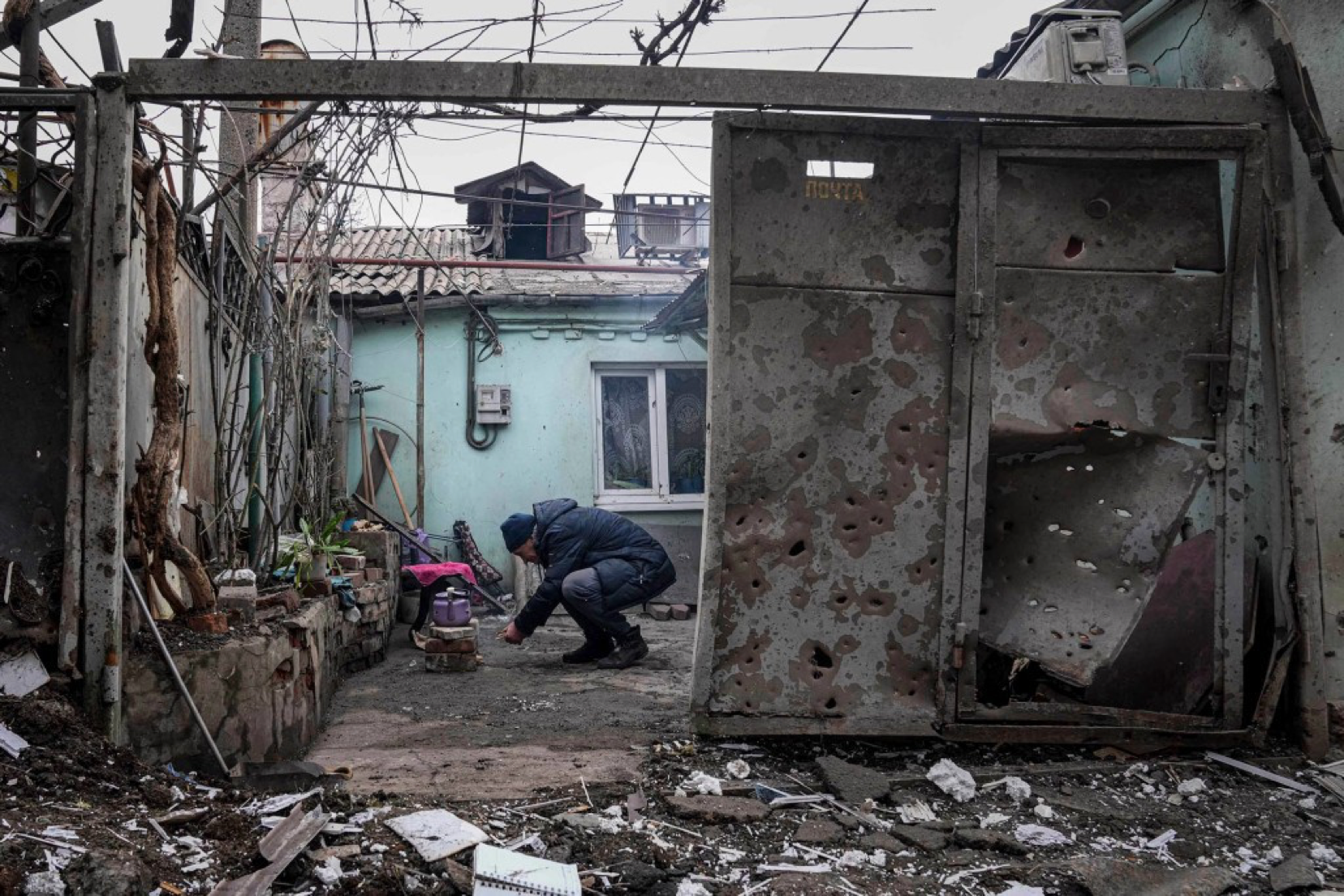The United Nations has advised its communications staffers against using the terms “war” or “invasion” to describe Russia’s attack on Ukraine, according to a report out Tuesday that has some questioning whether the international body is cowed by the Kremlin.
The Irish Times, citing a Monday email from the UN’s global communications department, reported that employees have been told to refer to the fighting as a “conflict” or “military offensive” — even as Russian troops target Ukrainian civilians and more than 2 million people flee to neighboring countries.
The email also included a warning not to add Ukraine’s distinctive blue and yellow flag to official or personal social media accounts, a gesture that has become a worldwide symbol of support for the country since the Russian invasion began Feb. 24.
The email, which was posted on Twitter by Irish Times reporter Naomi O’Leary, described the cautious policy as a way to avoid “reputational risk.”
Get the latest updates in the Russia-Ukraine conflict with The Post’s live coverage.
“This is an important reminder that we, as international civil servants, have a responsibility to be impartial,” the message said. “There is a serious possibility of reputational risk that has been flagged by senior officials recently.”
The email is strikingly similar to Moscow’s recent edict that the war be called a “special military operation,” and raised concerns that the UN is going too far not to offend Russia, one of five permanent members of the body’s Security Council.
“Quite clearly this is not just any war, but an illegal war of aggression, that should be condemned from a height by all members of the UN and the UN itself,” Neale Richmond, a member of the Irish Parliament and the Fine Gael political party’s spokesman on European affairs, told the Irish Times.
“The fact is just because Russia is a big country that has an essential role in the UN, they’re influencing policy in a direction that’s simply false,” he added.
Roskomnadzor, the agency that regulates Russian media, ordered local outlets to delete the words “assault,” “invasion” or “declaration of war” two days after the attack was launched. The Russian parliament then passed a new law imposing prison terms of up to 15 years and a fine of up to $14,000 for spreading “fake” news about the military, which led a number of international news organizations to go dark or suspend operations in Russia.
A spokesman for UN Secretary-General António Guterres told The Post he was not aware of the email and pointed to a Monday tweet by Rosemary DiCarlo, the American head of the body’s political and peacebuilding department, to indicate the policy was not universally binding.
“Nearly two weeks on, it is painfully clear that those suffering the most after Russia’s invasion of #Ukraine are civilians — killed, wounded displaced,” DiCarlo tweeted. “This war is senseless. We are ready to support all good-faith efforts at negotiation to end the bloodshed.”
Guterres himself avoided using the terms “war” or “invasion” in remarks to the media last week after the UN General Assembly voted to denounce Russia’s attack.
“The message of the General Assembly is loud and clear,” he said at the time. “End hostilities in Ukraine now. Silence the guns now. Open the door to dialogue and diplomacy now.”




